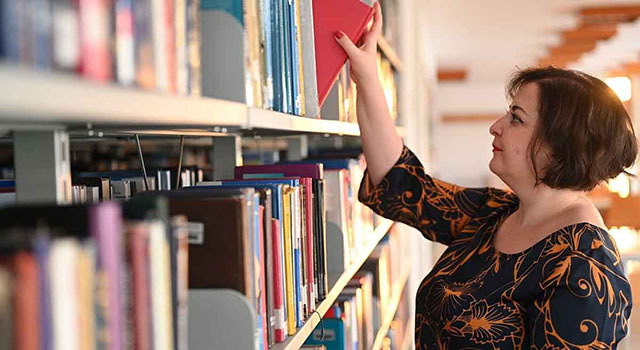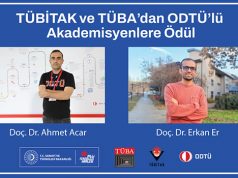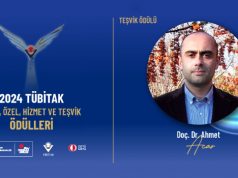
Assistant Prof. Dicle Dövencioğlu, from METU Psychology Department, was awarded within the scope of the “For Women in Science” program, in cooperation with L’Oréal-UNESCO by her “Multidimensionality of softness perception in viscoelastic materials” project. This award is granted to support women’s contribution to science and to contribute to setting role models by drawing attention to gender equality in science, to support female researchers in the field of science, to reward excellence, and to ensure recognition of young and talented scientists by L’Oréal Türkiye, in cooperation with UNESCO Turkey National Commission for 18 years.
Asst. Prof. Dövencioğlu gave detailed information about her award-winning project, which aims to bring the world we touch to the screen by pointing out the ubiquitous smart systems, emphasizing that phones recognize our faces, unmanned vehicles have learned object recognition more or less, but we have not yet figured out what material these objects are made of:
“Haptic perception of soft materials is a crucial ability in daily life; from buying fruits to choosing a shirt, it is essential that we explore these objects by touch when deciding. Traditionally, in the literature, haptic softness has been equated with the compliance of elastic materials or springs; however, people use the attribute ‘soft’ to describe a wide variety of materials that differ substantially in their physical properties. Previously, we have shown that participants use distinctive hand movements (exploratory procedures) while haptically exploring soft materials. For instance, they regularly rub textile materials with a soft surface, e.g., velvet or fur, press deformable materials, e.g., sponge, and run granular materials through their fingers, e.g. sand. Overall, these exploratory procedures are directly linked to the four dimensions of perceived softness: 1) viscous, 2) deformable, 3) granular, and 4) surface softness, but no further aspects for each perceptual dimension have been looked at so far. Here, in this project entitled “Multidimensionality of softness perception in viscoelastic materials” I plan to implement an interdisciplinary method to 1) analyse participants hand movements while exploring viscoelastic materials, 2) define a viscosity space of daily viscoelastic materials based on their rheological properties from the Central Laboratory, and finally 3) describe perceived softness in relation to the viscosity space by using a modeling and machine learning approach.”







